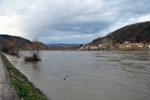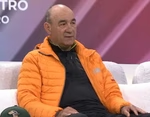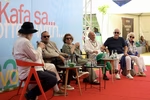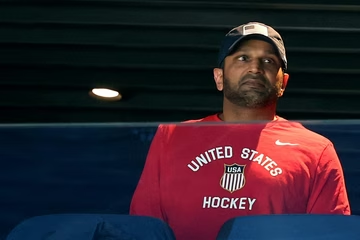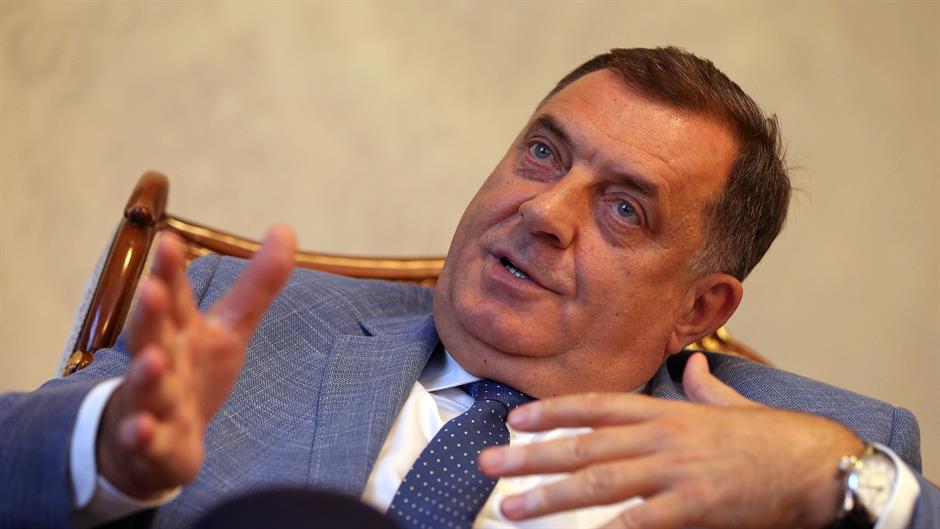
Bosnian Serb leader Milorad Dodik said on Thursday that, as the Bosnian Serb member of the country’s tripartite Presidency, he will be working in the interest of the region he represents, Republika Srpska (RS), and take Bosnia back to the system as initially described in the Dayton Peace Agreement.
Dodik will soon be swapping his post of the President of the Serb-dominated semi-autonomous entity in Bosnia for the post of the Bosnian Serb member of the tripartite state presidency.
He is the leader of the right-wing Serb Alliance of Independent Social Democrats (SNSD) and has been advocating for the secession of Republika Srpska for years. Becoming a member of an institution of a state he previously has been saying he wants to fall apart, Dodik said he wants “to finally see whether we are living in an imaginary situation in which everyone is constantly talking about some internationally recognised country of Bosnia and Herzegovina.”
Bosnia’s Presidency is composed of three members, each representing one of the three majority ethnic groups in the country - Bosniaks, Croats and Serbs. Decisions are made with a consensus of the three.
Reaching such a consensus is difficult to achieve as Presidency members have the Vital National Interest mechanism at their disposal, which is a move that can stop any decision they perceive as destructive to the national interest of their ethnic group.
At the October election, Dodik’s SNSD also won the majority in the Government of the RS, and he said that he needs as much support from the RS parliament as he can in order to be able to use the mechanism. Should he be outvoted by the two other Presidency members on a given issue, Dodik said he will use the mechanism to raise the issue with the RS National Assembly, where he needs a two-thirds majority agreeing with him in order to declare something destructive to Serb vital national interest.
He said he will not cooperate with Bosnian Serb politicians who were members of the Serb Democratic Party (SDS), Dodik’s fierce opponents, and who held minister positions at the Bosnian state level during the past government mandate, saying that they “damaged Republika Srpska.”
He also spoke about how Sarajevo perceives him.
Hardline nationalist Dodik has, apart from advocating for the RS to secede from Bosnia, aslo been denying the 1995 genocide in Srebrenica, even though international court rulings confirmed it was committed.
“There is a lot of talk in Sarajevo about what I am like,” he said. “That amuses me, and I am sending them a message that I will stay the way they know me and that I will tend to issues at the state level in detail and show responsibility toward the people who elected me.”
Dodik said that he will act in accordance with his position as a Presidency member of Bosnia and Herzegovina and that he will “accept the identities” of his two counterparts, but that he is “not prepared to subjugate” the identity of Serbs to any other identity or represent the idea that Bosnia is in any way more important than the RS.
He announced dismissals of a number of ambassadors, who he said have not contributed to the promotion of Republika Srpska.
“The ambassadors who I will name will have to submit annual reports and if those reports are not adopted, they will be dismissed,” he said, adding that currently some ambassadors only switch destinations they are sent to, while some have not deserved to be named as ambassadors at all.
“We have our quotas and they must be filled with people of integrity, of uncontested patriotism and ability to represent the RS, without hiding this under a narrative of Bosnia and Herzegovina,” he said.
There is a “general anti-Serb hysteria” in Sarajevo which is creating bad relations with Serbia, he said but added that this will not bother him.
“We want cooperation with Serbia to be as good as possible and we want to remove any obstacles to it. I am aware I will not be able to do this by myself, as the three of us in the Bosnian Presidency need to pass joint decisions,” he said.
“Until now, the stance of Sarajevo was most often a ‘no’ regarding anything that has to do with Serbia,” he said, adding that if his two counterparts obstruct anything that is important to him, he will respond in the same way and that this should not be perceived as a threat.
He called upon his colleagues to cooperate with him.
“If I, as a Serb from the RS, which is part of Bosnia, find something to be important in regard to the relations with Serbia, and it does not affect the Bosniaks, then it cannot be halted. Or else, everything that is important to them will be halted in the same way,” he said.
Dodik strongly opposes foreign influence in Bosnia’s affairs, mostly the influence of the High Representative, the official the international community appoints to oversee the implementation of the Dayton Peace Agreement which ended the 1992-1995 war.
“This is a country that does not have sovereignty at all, as there is no country that is sovereign while having non-elected foreigners who run it,” he said.
The Presidency needs to abolish the position of High Representative and there needs to be a joint decision that this position, as well as the positions of foreign judges in the Constitutional Court, are not needed anymore, he stressed.
He said that the RS “does not support a Bosnia and Herzegovina as imposed by the High Representative, but one as described in the Dayton Peace Agreement and the Constitution.”
"Foreigners have in Bosnia formed an unbearably bad structure and a submissive political mentality where ambassadors and international officials are viewed as the most important persons in the functioning of the country," Dodik stressed.
“We do not accept the fact that the High Representative has imposed laws, which even the Bosnian Parliament adopted, but which are not in accordance with the Constitution,” he said.
He explained that he does not want to accept anything that was imposed, naming the State Police (State Investigation and Protection Agency, SIPA), the Intelligence-Security Agency, the State Prosecutor’s Office and the State Court.
“These institutions work against the RS,” he said.
Dodik added that he will try to take Bosnia back to the system as initially described in the Dayton Peace Agreement.
“Bosnia has never had a joint policy, nor a consensus, and if there ever was anything, it was created by foreigners,” the Bosnian Serb leader said, adding that someone is always dissatisfied with such a setup.
According to him, Croats and Serbs are dissatisfied because their rights have been abolished, while Bosniaks are dissatisfied because they cannot establish a unitary Bosnia and Herzegovina.
“I have no bad intentions toward Bosniaks and Croats, I do not want to prevent anything that is good for them while it does not damage the RS and the Serb people,” he said, adding that he expects the same from his partners in the Presidency.
Dodik announced that he will propose the current Finance Minister of Republika Srpska, Zoran Tegeltija, to lead the country’s government as Chairman of the Council of Ministers, as he has always been loyal to the SNSD.
Kakvo je tvoje mišljenje o ovome?
Učestvuj u diskusiji ili pročitaj komentare





 Srbija
Srbija
 Hrvatska
Hrvatska
 Slovenija
Slovenija












